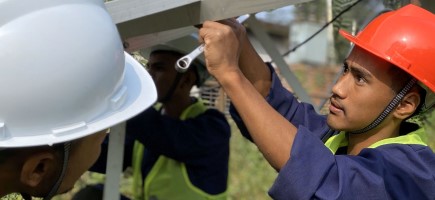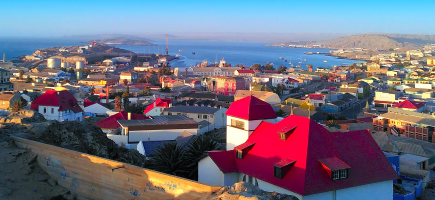

Sustainable infrastructure: Renewable energy: boosting growth in Viet Nam
GIZ is using its expertise in the field of energy to support Viet Nam’s path to a green economy.
Viet Nam’s economy is growing rapidly. The country on the Mekong Delta is positioning itself as an attractive production location and as an alternative to China. This is boosting its thirst for energy, which it is aiming to satisfy with green and equitable energy – with support from GIZ.
Electronic products and clothing roll off the production lines in Viet Nam’s factories and its fields produce rice and coffee for the world. Viet Nam’s tourist industry is booming. The country is already home to the second largest handling and manufacturing site for products sold by furniture retailer IKEA. Viet Nam is doing everything it can to continue expanding its industrial capacity.
To meet the growing demand for energy that comes with this expansion, the country has been developing its energy market for many years. Electricity production is increasing and the electricity grid is growing. And what’s more, these things are happening in a sustainable way: Viet Nam aims to have completely phased out coal-fired power generation by 2050. By then – according to the plan – renewable energy will meet over 95 per cent of demand.
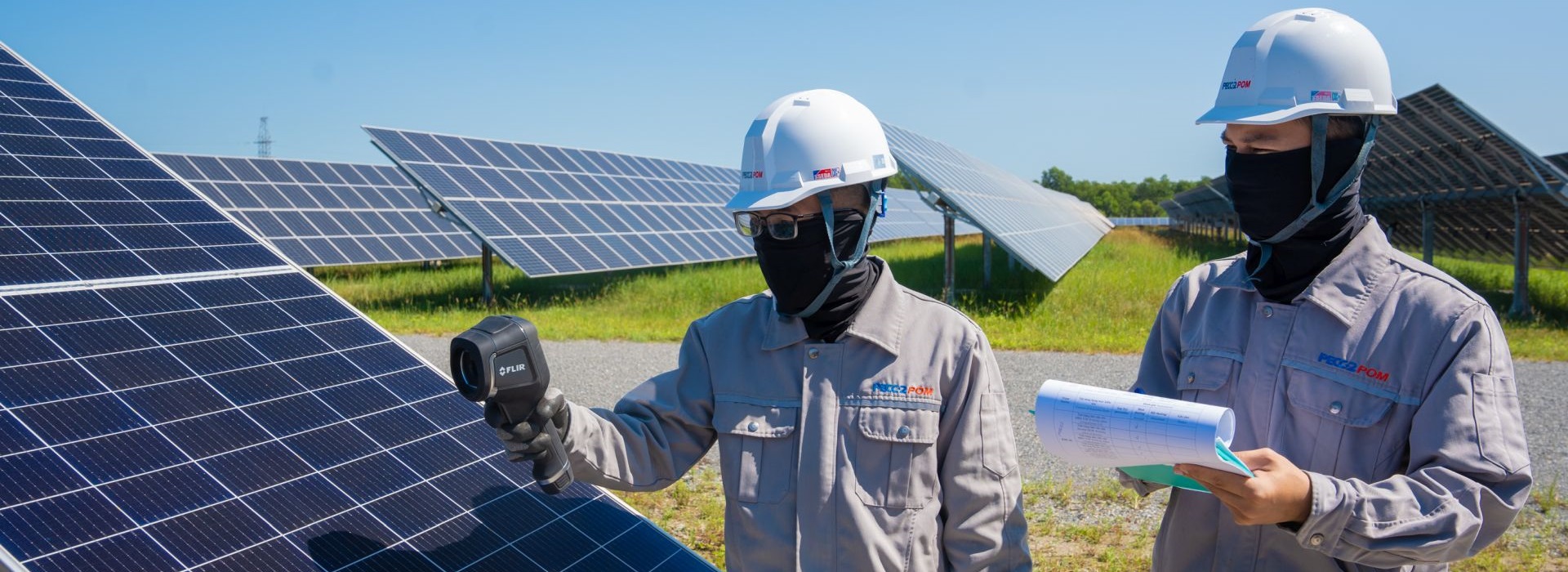
Creating a sustainable energy policy
GIZ has made a major contribution to ensuring that, today, half of the country’s energy needs are already met by sources such as solar, wind and hydropower. Over the past 10 years, it has worked on behalf of the German Federal Ministry for Economic Cooperation and Development (BMZ), the Federal Ministry for Economic Affairs and Climate Action (BMWK) and the European Union to bring together and advise the Vietnamese Government and stakeholders in the electricity market. Its recommendations have been incorporated into important guidelines and laws that now regulate the conditions under which renewable energy can be connected to the grid, for example. GIZ has also set up and organised the main energy advisory platforms that political partners use as a basis for their decision-making.
One of the key outcomes of this transfer of knowledge and technology is that Viet Nam has introduced feed-in tariffs. They have been an incentive for private households and businesses to invest in solar panels on roofs or in fields and also in wind turbines, enabling them to feed self-generated electricity into the grid at a profit. Viet Nam has thus become the largest producer of renewable energy in South-East Asia. As late as 2018, virtually none of its energy came from renewable sources, whereas today the Vietnamese are able to meet almost 100 per cent of their own energy needs with the help of renewable energy.
However, the rapid expansion of solar and wind power has also brought new challenges, such as overloading the electricity grid. In addition to comprehensive investment in expanding the grid, smart grid management now has to be a priority if a higher share of renewables in the energy mix is to be achieved. To remedy the situation, GIZ has explored ways of better matching electricity supply and demand – and found solutions here, too, that have already led to improvements.
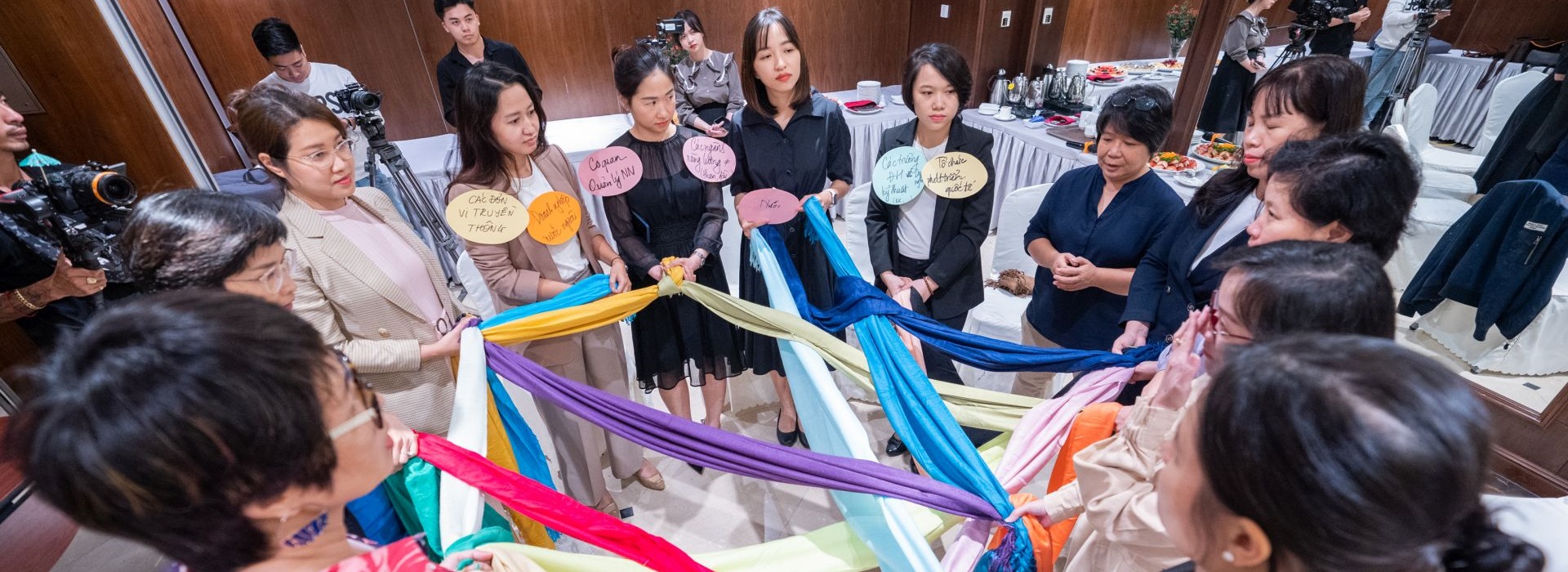
Skilled workers for the energy transition
There were some reservations along the way, however. Chi Mai, a project manager at GIZ, reports that those in positions of responsibility in Binh Thuan province had serious concerns. Speaking on behalf of the local people, district and community leaders voiced fears that the masts might fall and kill people or cattle. Study trips to German wind farms allayed these fears. ‘The trip to Germany convinced them that this was a safe, clean and green project, and they were able to get this message across to the people in their communities. Doubts then gave way to unreserved confidence.’ Viet Nam now plans to start developing its offshore wind power by 2030. Offshore wind turbines are therefore likely to be a common sight along the longest coastline in the region in future.
The programme to train energy experts is also part of the success story: over 1,300 people took part in training courses that GIZ devised and implemented in conjunction with Vietnamese and international partners. As a result, more than 1,700 companies have implemented energy management systems, helping them to reduce energy consumption.. Tran Viet Nguyen, deputy head of business development with state-owned energy utility EVN said: ‘We highly appreciate GIZ’s technical analyses, training courses, as well as seminars and conferences to share international experiences in the fields of energy transition, renewable energy, and new energy. The highly applicable training courses have facilitated our staff to carry out their daily tasks correctly.’ Today, Viet Nam has one of the world’s highest employment rates in the renewable energy sector, demonstrating that sustainability can be an economic sector in itself.
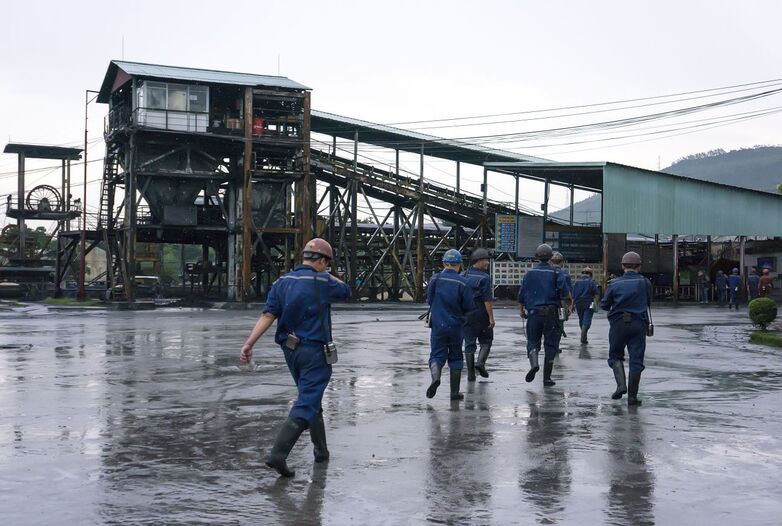
Coal phase-out and structural change: similar challenges to those in Germany
However, the transition does not come without problems. The phase-out is causing job losses in Viet Nam’s coal-mining regions. To prevent these places and the people who live there from being left behind, it is vital that they benefit from structural change programmes without delay. They need new job opportunities. There are plans to restore landscapes blighted by the legacy of open-cast mining. Philipp Munzinger heads up GIZ’s energy programme in Viet Nam. ‘The tasks we are now supporting include mitigating these drastic changes and making sure that the energy transition is just and equitable,’ he explains. One of GIZ’s activities in this context involved helping to build a women’s network in the energy sector. It strengthens the capacities of women in key positions with an emphasis on the energy transition and prepares them for careers in the sector.
Viet Nam is focused on the future. Its plans to continue expanding the use of renewable energy and to completely decarbonise the energy sector raise questions similar to those Germany is dealing with: how can we store energy on a large scale? How can we harness the potential of green hydrogen? How can we make the power grid even more stable? GIZ will continue to support Viet Nam with a view to finding suitable solutions to these questions, too.
Last update: June 2024
